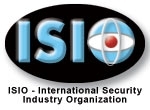Professionals rely on incident reporting
Criminologists, Security Consultants and Security Risk Managers rely on PSIM Incident Management and Reporting
The security consultant or the security manager is the one should have a clear perspective of their issues and objectives to plan, purposely select the appropriate technology and manpower. The security practitioner must be fully aware that there could be crime happening on the ground without them being aware of. This dictates that continuous validated feedback from the people on the ground is imperative to be in rhythm and timing to limit or mitigate collateral damage.
The security consultant or proficient manager could initially base their strategy on incident reporting by staff. The Security/Consultant /Risk Manager should be able to read the narrative (big-picture) of their incident reports, to identify a modus operandi (pattern) for uncovering new crime or discover evolving copycat crime.
Consistently, the author of this article affirms that success depends on the critical thinking of the narrative and the level of situational awareness of the decision-makers (people) on the ground and their reaction speed. This dictates that reporting by the people on the ground could give indication that there is already crime in theatre or has just begun. The trained staff could pick up on incidental, accidental or distinct clues that could contribute towards determining what is truly happening on the ground.
The clues could be sought from one department or various departments (in concert on the same crime) because the villain/s could work as a lone-wolf predator or in concert with others either voluntarily or under duress.
But, can the security manager truly rely on the accuracy and validity of the reports provided by their staff. Staff are human and may either not provide a report or provide a report with part truths, a total fabrication, or a report that is based on purposed misinformation. These reports could also be provided voluntarily or under duress.
The term situational awareness refers to knowledge in this case, and not environmental situational awareness that one practises in military, defence or close protection. The knowledge would be related to the criminal behaviour and methods of crime in their location and field of interest. In certain cases the knowledge would be related to transnational or local organized crime and gang crime because the products or services could be used to traffic illegal goods and services without management knowing. For example; the logistics could be transporting drugs, organs, humans and weapons.
It is not the technology but the users that solves cases
The professional practitioners be it a manager, a security consultant or a hybrid expert would know what to use and how to use the information reported;
- Knows the methods used to obtain reliable and all-the-truthful information from the people on the ground, ensure that their reports were completed and signed, and that the information must be understood by manager that is critically thinking the narrative to understand and manage the ‘nature of their beast’.
- What appropriate technology to use to heighten situational awareness and obtain hard evidence
- Appropriate tracing or tracking equipment that would be required for distinct purpose
- Equipment and method to stop information leakage, be it using bug detection, social media monitoring technology or mobile phone tracking in some instances.
Incident reports put together and properly understood could find concern for risk issues focusing on the criminal/s or terrorist/s, besides exposing lies, unreported issues, mistakes or strengths of staff.
. View PSIM Physical Security Investigation Management for more
